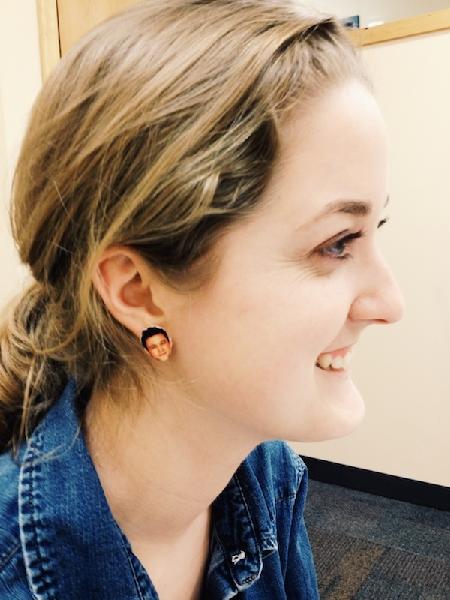|
Resilience and Regularity  Resilience and Regularity How I was diagnosed with scleroderma, how that affected my school work, and what it means for me now as a college student. "You can do anything you want to." I sat on the exam table, feet swinging above the floor, unsure of what to say or do next. My mom's face was covered in tears, and she smiled and rubbed my knee. "It's going to be OK". I smiled back assuredly. Why was my mom so sad? I wondered. The doctor just said that as soon as I started the medication for scleroderma and Raynaud's, everything would be fine. I looked forward to my medication, knowing that taking my orange pills meant jelly beans. By sophomore year, my life had split into three: school, extracurriculars, and appointments. An active participant in class discussions, I raised my purple hand proudly, hiding the wince as my fingers spread. New appointments meant new issues, and I began to stay after school almost everyday. By junior year, I was a strong leader in clubs and always asking "How can I help?" I argued profusely with my parents about appointments, and I began to watch myself break into two people: school Megan and home Megan. As my stress levels added to my illness, I looked to school activities as a way to control a part of my life. Weekly lectures from doctors told me that if I did not slow down, life was going to get very hard. But, how could I afford to slow down? A particularly tense appointment led to my epiphany: I am going to take the words that you have told me for eight years and let you sit with them in silence. The question came. "Maybe you should drop a leadership position? You really need 9 hours of sleep" my doctor suggested. And I replied, "I can do anything I want to." And I still continue to do what I want, keeping in mind my own limits. Because the pain is in my hands, sometimes it can be difficult to write. With my demanding coursework, writing is often all I do, and since pain can vary day to day, it is vital that I stay on top or ahead of my workload. For example, if I know that we're going to have a day of damp weather in the upcoming week, I plan to finish my history notes over the weekend so my stiff hands are not required to write out six pages of notes in five school nights. In a way, my pain is the ultimate anti-procrastination tool. Illness can be used as an excuse for almost anything, but I have found that my quality of life is so much better when I use my diagnosis to energize me than hold me back. Now that I'm in college, I have to start all over again: explaining to teachers and friends my limits and telling strangers that no I'm not an artist and yes, I don't have frostbite, I'm sure. Since my diagnosis, I've learned how to navigate insurance company phone lines, pharmacy refills, and go to appointments on my own. Scleroderma is a part of me that I'm proud of because I am self-sufficient and resilient: two qualities that everyone needs to hold on to in life. I just got a little extra help because of my illness. |
|
Back
Understanding Scleroderma
Back
Treating Scleroderma
Back
Living Well with Scleroderma
Back
Advancing Research and Treatment
Back
Get Involved

